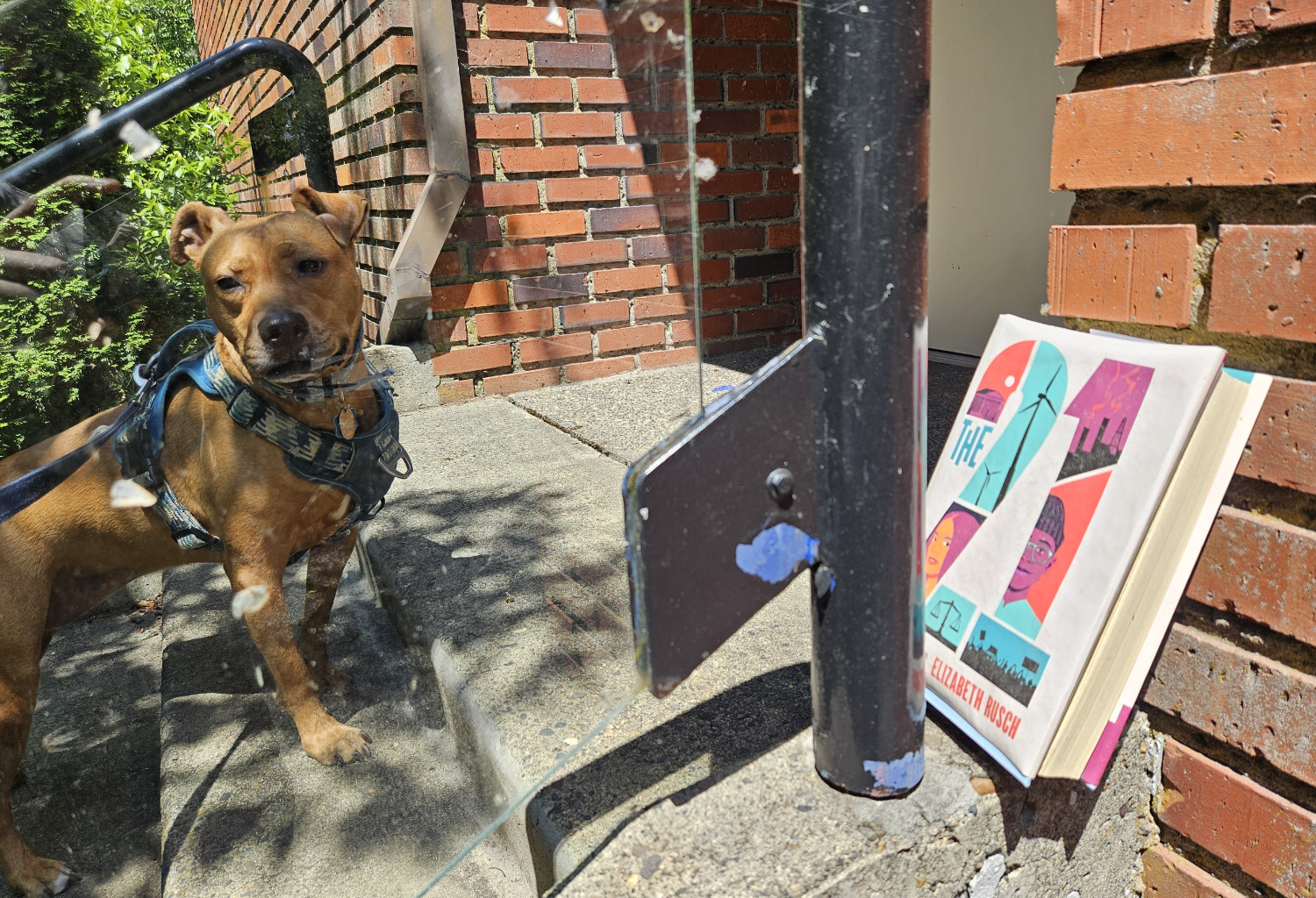Streetbooks

Barley, a dog, views the photographer a little suspiciously through a clear plastic barrier, against which is wedged a copy of “The 21” (2023) by Elizabeth Rusch.
My experience of bookstores has changed as I’ve grown older. As a youth, bookstores gave me a feeling of immense potential, that there was surely so much cool stuff to be discovered by someone with the wherewithal to sift through what the stacks had to offer. Today, I can’t quite shake a sort of lingering dread: “Geez, I hope someone is reading all these.” I think what’s contributed to this is the speed with which books that I think are excellent get pushed to the temporal horizon by the never-ending flood of new books being published. The firehose of Content that is generated on the Internet (much of it bad) is overwhelming but also relatively easy to step away from. A good bookstore is that firehose made manifest as literal tons of paper and cardstock, a wave that would crush you flat if it crashed upon you.
I find myself dwelling on these feelings when I discover loose books out and about on my walks with Barley. In addition to the countless little libraries I find set up throughout various neighborhoods, I’ve run across my fair share of books out and about, exposed to the elements. I can only hope whoever decided this was the best way to dispose of a book at least gave it the courtesy of reading it first, because it feels safe to assume that they’re pretty likely to be the last person to read that copy.